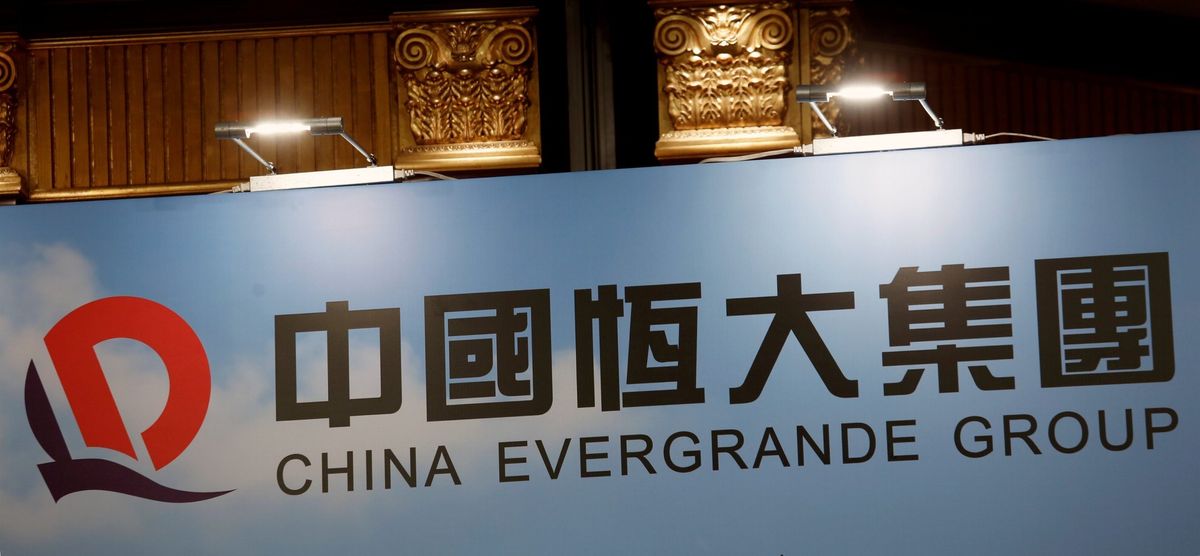China’s Evergrande Group seeks escape from mounting debt worries

A few minutes every morning is all you need.
Stay up to date on the world's Headlines and Human Stories. It's fun, it's factual, it's fluff-free.
The property developer is aiming to stage an IPO in Hong Kong to raise as much as US$2 billion, or about 13 billion Chinese yuan, to ease its debt worries.
One of China’s largest property developers, the Evergrande Real Estate Group, also holds the ominous distinction of being the most indebted developer in the world.
In early November, the company saw its four-year-long effort to reorganize its business to appease investors and raise extra capital fall through.
Now Evergrande, which in August reportedly warned Chinese authorities of a cash crunch in its business that could pose systemic risks, is seeking new opportunities to escape its mounting debt.
The property developer is aiming to stage an IPO in Hong Kong to raise as much as US$2 billion, or about 13 billion Chinese yuan, to ease its debt worries.
With the sale of its properties throughout China offered at a discount in October and requests for government support in August, Evergrande appears to be exhausting all available avenues to escape its rising debt, which is increasingly unnerving investors and destroying confidence.
Debt problems
The Shenzhen-based Evergrande is one of China’s largest property developers, reporting some 477.5 billion yuan, roughly US$72 billion, in revenue for 2019, the second-largest among Chinese real estate companies.
But the company is also one of the country’s most indebted developers. Its current debt stands somewhere above US$120 billion, which, as of end of June 2020, involves some 128 banks and 121 non-banking institutions.
In September, reports circulated that Evergrande had sent a letter in the previous month to Chinese officials in southern Guangdong warning of a potential cash crunch, which, if it came to pass, would pose systemic risks given Evergrande’s significant presence across the mainland, owning more than 870 projects in some 280 cities across China.
The letter reportedly asked the local government to support a planned listing of Hengda Real Estate, an Evergrande subsidiary, on China’s A-share market.
Despite Evergrande’s insistence that the online rumors were “fabricated” or “defamation,” investors and markets were sent into a frenzy, illustrating a lack of confidence in Evergrande’s efforts to fight its mounting debt.
Evergrande’s shares fell to their lowest level since May in Hong Kong markets and bondholders also staged an exodus following the news.
Debt escape
In September, the developer also announced a nationwide campaign offering 30% discounts on its properties. In October, little over a month after the campaign had begun, Evergrande reported it had sold 141.63 billion yuan, or US$21.1 billion, of real estate in that short period.
Evergrande’s hopes of fixing its debt problem, however, remained fixed on securing a backdoor listing for its Hengda unit on the A-share market.
Through this plan, Evergrande would sell its Hengda Real Estate unit to Shenzhen Real Estate in exchange for equity control. The company had also gathered some 130 billion yuan, or US$19.7 billion, in support of the plan, promising big dividends.
In November, the plan fell through. Evergrande reported it was terminating its reorganization plan with Shenzhen Real Estate, though the company did not state precisely why.
The termination of the deal was a crisis point for Evergrande. The company had promised to repay investors by March 2021 should the plan fail to proceed.
In its aftermath, however, the property developer reported it had reached agreements to avoid 86.3 billion yuan of its 130 billion yuan investment in the deal. The company also reported it had negotiated further deals with investors holding a further 35.7 billion yuan in the deal but gave few details.
According to Hao Yang, an analyst at Nanjing Securities, while the nightmare scenario of repaying this investment at once did not come to pass, “in the longer term, Evergrande’s credit outlook depends on whether it can cut debt faster than it matures and adjust its business to a more sustainable level.”
The company is reportedly planning an initial public offering (IPO) of its property management arm in Hong Kong, which seeks to raise some US$2 billion in additional capital.
As reported in Bloomberg, this would help the company “pare back a $120 billion debt pile” as well as appease increasingly stringent oversight of “developers’ fundraising activities by Chinese regulators.”
Alongside this IPO effort, two companies backed by local governments in the Guangdong province, in which Evergrande is based, have also stepped in to provide a US$4.6 billion, or 30 billion yuan, lifeline for the company by buying out existing investors in the Evergrande subsidiary Hengda Real Estate.
The dramatic back and forth experienced by Evergrande over the last few months reveals the extent to which the company is pursuing a future with a lessened debt load.
But not all of these efforts have been successful and only time will tell whether Evergrande’s planned IPO will be or not.
Have a tip or story? Get in touch with our reporters at tips@themilsource.com




Comments ()